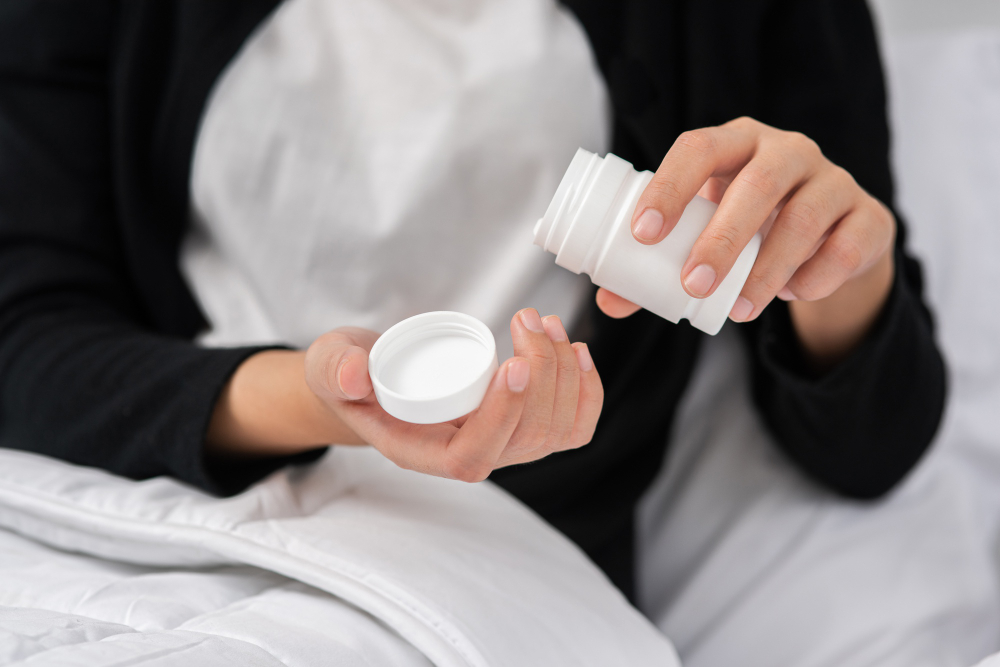Erectile Dysfunction: Causes and Treatment


Caroline Hedges
Caroline Hedges is a critically acclaimed researcher, writer and serial entrepreneur.
With a knack for making the obscure plain, she is able to distill her research
in writing both fun and engaging posts.

Erectile dysfunction is a condition that plagues many men and can often be difficult to talk about. But don’t worry, we’re here to help. In this article, we’ll discuss the causes of erectile dysfunction, as well as various treatment options. So read on for all the information you need to know about erectile dysfunction!
What Is an Erectile Dysfunction?
Erectile dysfunction is the inability to get an erection, and it affects sex life in many ways. It can cause erections that are “weak” or not as hard as they should be. Erectile dysfunction can affect your sex drive, making you lose interest in sex entirely and orgasms difficult or impossible.
What Causes Erectile Dysfunction?
There are many different possible causes of erectile dysfunction, which can vary from person to person. Frequently there is no apparent cause for erectile dysfunction, but there are several factors that are known to contribute:
#1: Low Testosterone Levels
Testosterone is the primary male sex hormone, and it’s essential for maintaining an erection.
#2: Prescription Medications
Many different medications, such as blood pressure medication, antidepressants, and antihistamines, can cause erectile dysfunction. If you believe one of these is causing your erectile dysfunction symptoms, be sure to let your doctor know so they can adjust your dosage or switch you to an alternative medication if possible.
#3: Cardiovascular Disease
This is one of the biggest causes of erectile dysfunction in older men. Cardiovascular diseases make erections harder to achieve by making the blood vessels in the penis narrower.
#4: Obesity
A body mass index (BMI) that’s too high will put excess pressure on your genitals and make it harder to sustain an erection.
#5: Alcoholism
Alcohol, especially excessive amounts, has been known to cause erectile dysfunction. Drinking too much alcohol interferes with your nervous system’s ability to send healthy signals to certain parts of your body, including the genital region.
#6: Tobacco Use or Smoking
Smoking is a major contributing factor to erectile dysfunction. Nicotine negatively affects arteries and blood vessels, thus reducing the amount of blood flow to your penis during an erection. So if you’re having issues with getting or maintaining an erection, stop smoking today!
#7: Diabetes
Men who have diabetes are at much higher risk for erectile dysfunction than those without. Diabetes affects how effectively the body uses insulin, so it can also affect the hormone levels that control sex drive.
#8: Aging
Aging is a common cause of erectile dysfunction, especially after 50. Age is often accompanied by diseases that damage the cardiovascular system. High blood pressure is one example.
In most cases of erectile dysfunction, there is no single cause that contributes. Instead, it tends to be a combination of factors from the categories listed above. Though it may not be clear exactly what the cause is, effective treatment options are still available.
What Are the Treatment Options for Erectile Dysfunction?
The treatment method you choose will depend on the cause of your erectile dysfunction, as well as how severe it is. However, numerous men can manage their erectile dysfunction by making small lifestyle changes. For instance, losing weight will make it easier for your body to sustain an erection. In addition, making simple changes to your diet (e.g., drastically reducing how much salt you eat) or giving up alcohol and smoking can make a big difference.
Other cases of erectile dysfunction can only be solved through medication and treatment. Many different medications work by increasing blood flow to the penis, making it easier for an erection to occur.
Fortunately, treatments for erectile dysfunction also come in many forms:
#1: Testosterone Replacement Therapy
Some men experience erectile dysfunction because the body doesn’t produce enough testosterone. Testosterone replacement therapy is a simple process where the doctor injects you with bioidentical testosterone to help combat low levels and restore sexual function.
#2: Oral Prescription Medication
This treatment method is also known as the phosphodiesterase-5 (PDE5) inhibitor medicine. Erectile dysfunction can be caused by atherosclerosis, i.e., plaque accumulation on the artery walls. PDE5 inhibitor medication helps relax these muscles so that blood flows more freely. Four oral PDE5 inhibitors are commercially available in the U.S.:
- Sildenafil (Viagra, Pfizer);
- Vardenafil (Levitra and Staxyn, Bayer/GlaxoSmithKline);
- Tadalafil (Cialis, Eli Lilly);
- Avanafil (Stendra, Vivus).
#3: Topical Medication
You can apply creams and gels directly to the penis before sex.
#4: Vacuum Devices
If medication is not an option, you can try a vacuum device. This device is placed over the penis and creates a vacuum, pulling blood into the penis and causing an erection.
#5: Penile Injections
If you have erectile dysfunction due to scarring or swelling in the penile blood vessels, injections may be the right solution for you.
#6: Surgery
Surgical implants and grafting can be used to alter parts of your penis that are not working correctly. In more severe cases, penile surgery involves placing a small pump in your scrotum and a tube inside your penis. Surgery is only advised if all other methods have failed.
Invitation
Erectile dysfunction is a common condition that affects millions of men worldwide. Treatment options are available at MedHealth 360, such as Testosterone Replacement Therapy. Schedule a complimentary consultation now and get a personalized program to treat your erectile dysfunction! Our team of experts can help you find the best treatment for your individual needs and provide support throughout your journey to better health. Don’t let erectile dysfunction keep you from enjoying life—contact us today to get started on reclaiming your sexual health!




